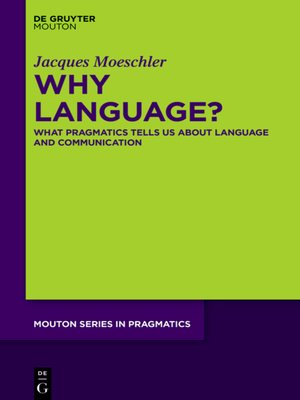Why Language?
ebook ∣ What Pragmatics Tells Us About Language And Communication · Mouton Series in Pragmatics [MSP]
By Jacques Moeschler

Sign up to save your library
With an OverDrive account, you can save your favorite libraries for at-a-glance information about availability. Find out more about OverDrive accounts.
Find this title in Libby, the library reading app by OverDrive.



Search for a digital library with this title
Title found at these libraries:
| Library Name | Distance |
|---|---|
| Loading... |
There is, at present, no book introducing the general issue of why language is specific to human beings, how it works, why language is not communication and communication is not language, why languages vary and how they evolved.
Based on the most recent works in linguistics and pragmatics, Why Language? addresses many questions that everyone has about language.
Starting from false claims about language and languages, showing that language is not communication and communication is not language, the first part (Language and Communication) ends by proposing a difference between linguistic rules and communicative principles. The second part (Language, Society, Discourse) includes domains of language and language uses which are generally taken as extrinsic to language, such as language variety, discourse and non-ordinary (literary) usages. Special attention is given to figures of discourse (metaphor, metonymy, irony) and literary usages such as narration and free indirect style.
The reader, either specialist or amateur in language science, will find a first and unique synthesis about what we know today about language and what we have yet to learn, sketching what could be the future of linguistics in the next decades.







